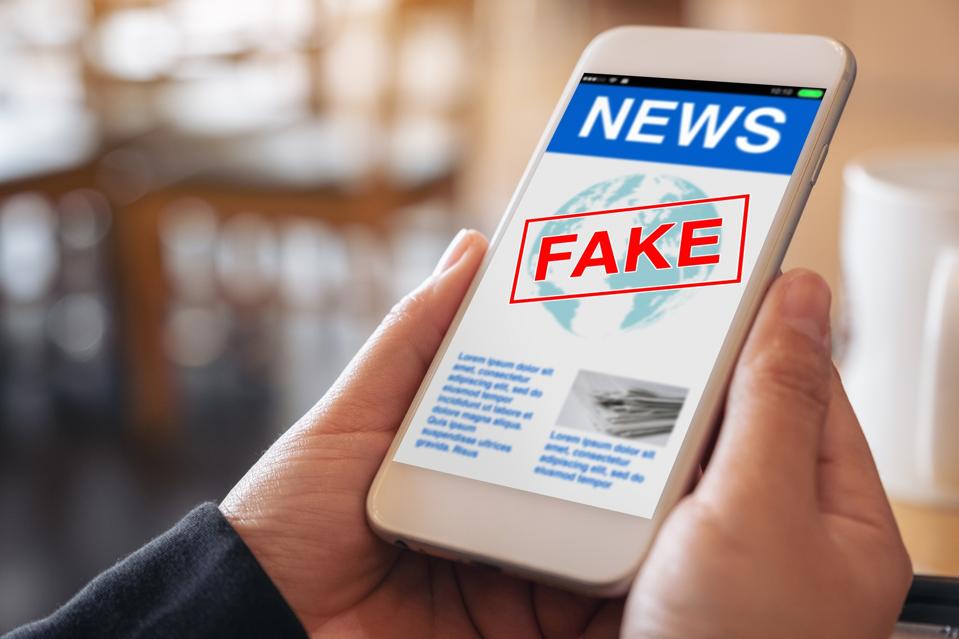Social media has become a breeding ground for misinformation, and while some of it could be harmless, it can also impact the health and well-being of users. According to research from the American Cancer Society, cancer misinformation on the social networks now has a greater reach than medical facts.
Last year, Dr. Stacy Loeb warned that false information can even influence treatments that patients may seek. Medical professionals said instead of scrolling though Facebook, X, YouTube, TikTok or Instagram, users should look to the Mayo Clinic, the American Cancer Society and other trusted sources.
“A cancer diagnosis can be scary and shocking, and people are particularly vulnerable when they or a loved one hears the news,” said technology industry analyst Susan Schreiner of C4 Trends.
“Some turn to ‘Dr. Google,’ WebMD, the Mayo Clinic or other trusted and credible resources to gain a better understanding. Social media platforms and networks are widely used by different stakeholders in oncology, and studies support their perceived benefits as useful tools for communicating and distributing medical information, education and training, influencing those at risk of cancer about lifestyle changes, and so on,” Schreiner continued. “In addition to health professionals and scientists, patients, families of patients, and other cancer-related stakeholders seek and share information via social media.”
Social Media Offers Quick Answers
It is true that social media has become a source of news and information, but that only partially explains why some cancer patients turn to it for answers. Part of it could be the quick response that a post on the platforms can provide.
“When someone receives a cancer diagnosis, they’re often overwhelmed, afraid, and looking for answers that are immediate and reassuring. Unfortunately, that can lead them to sources that are more accessible than they are accurate. This isn’t about patients disregarding the advice of medical practitioners; more often, it’s about not knowing how or not having access to engage effectively,” explained Dr. Yolanda M. VanRiel, RN, associate professor and department chair of nursing at North Carolina Central University.
“Cancer carries emotional weight, uncertainty, and a deep sense of urgency,” added VanReil.
Those suddenly facing cancer are navigating complex decisions and often feel like they’re racing against time. Social media may help answer questions, and some of the stories from survivors can be beneficial. However, it also opens a door to advice and insight that is anything but helpful.
“That environment makes it easy for misinformation to thrive, especially content that promises quick fixes, non-toxic cures, or alternatives that seem to bypass the discomfort of conventional treatment,” warned VanReil. “Unlike more common, acute illnesses, cancer involves prolonged treatment journeys and side effects that can be physically and emotionally exhausting. That makes people more vulnerable to seeking out messages that offer control or hope, even if those messages aren’t grounded in science.”
Misinformation Spreads Faster Than Fact
As more Americans use social media as a source for news, it has resulted in greater trust being placed on the platforms, and that in turn facilitates the spread of misinformation. That is true of everything, including facts about cancer.
“Research shows that inaccurate and misleading health-related posts on social media often get more views and engagement—e.g., likes, shares—from users compared with accurate information, according to a paper in CA: A Cancer Journal for Clinicians, the flagship journal of the American Cancer Society,” noted Schreiner.
“This slop of misinformation is worsening given the stance of members of the current administration and actions at the Department of Health and Human Services, as well as the hallucinations of AI,” Schreiner added. “Despite the many benefits of social media for cancer care and research, there are those oblivious to the risks associated with widespread misinformation or inaccurate information about cancer. It ranges from inaccurate information about cancer risk factors or unproven treatment options to conspiracy theories and public relations articles or advertisements appearing as reliable medical content.”
The situation is made worse by the political divide, where trust isn’t extended to those with even a slightly different worldview.
“In today’s polarized environment, perhaps susceptibility to misinformation is related to people turning to their trusted silo of ‘experts,’ that often align with their political views rather than relying on scientific evidence,” said Schreiner. “Unfortunately, we are living in the ‘Wild West’ of baseless cancer misinformation and unproven remedies. While these sites may offer hope and an easy answer—they pose grave danger and risk for people making very real life-and-death decisions.”

